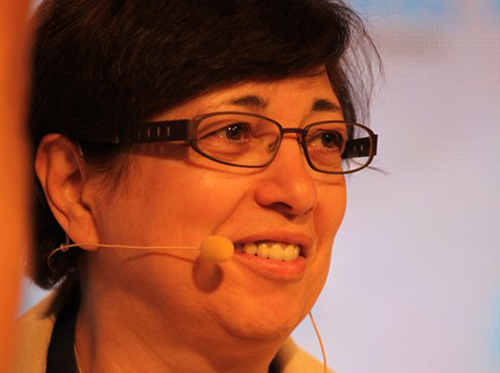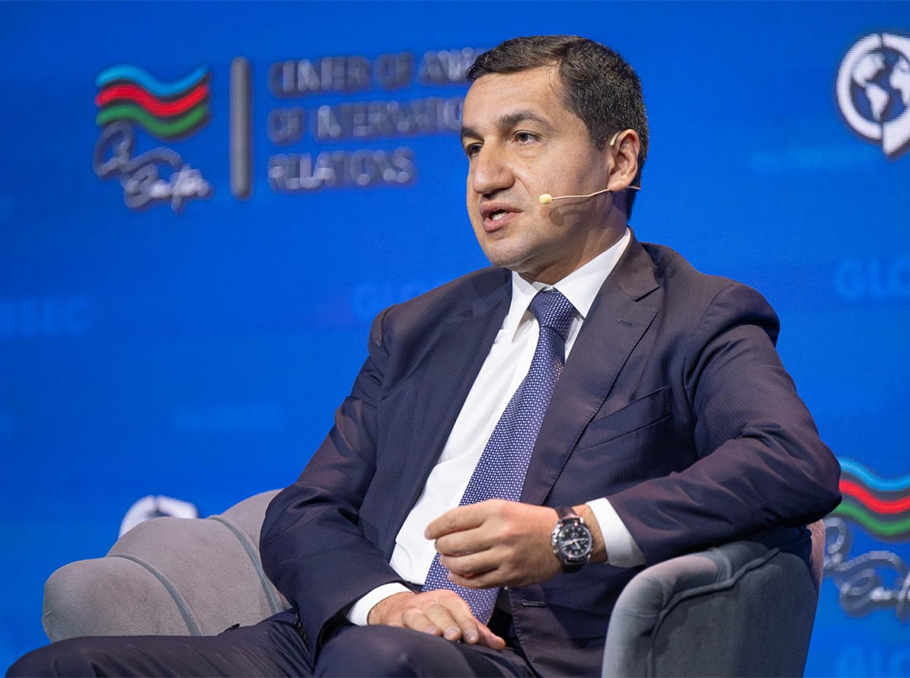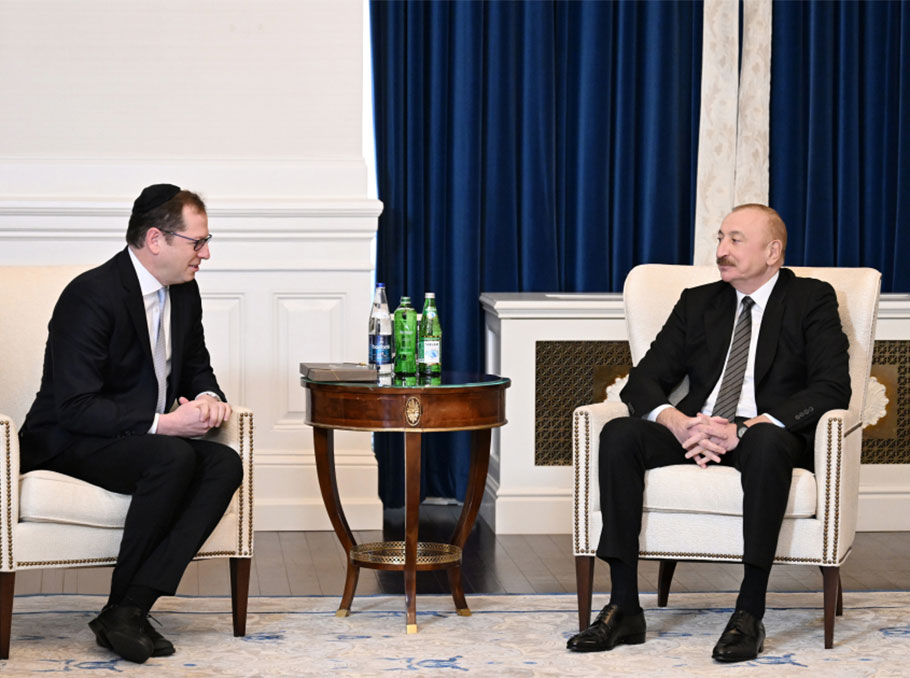- You work in Armenia for about a year. What media outlets are permanent sources of information for you?
- I must say that I am travelling a lot, so I can hardly say I am constantly in Armenia (smiling). I don’t have a key source of information. I am trying to watch ArmNews TV after its re-branding. I watch and read A1Plus.am, 1in.am. I often visit Epress.am, Hetq.am. Hetq.am is one of those rare resources in Armenia that depicts real human stories and is really trying to help people. As far as I can’t read in Armenian, I ask my friends to tell me about interesting publications in Aravot daily. Sometimes, I watch political talk-shows on Yerkir Media.
As for the media in general, I wouldn’t like to offend anyone, but almost every news item is being duplicated almost word-for-word on two dozens of web sites, newspapers, etc.
I cannot bring myself to watch Armenian TV for a long time. I don’t like soap operas. There are a few really good programs and they are almost all alike. They lack dramaturgy, conflict. The television is, unfortunately, provincial. ArmNews differs a little, they are “fresh”, but it must be very difficult to have a 24-hour news channel in a small Armenia with not so much news, so the programs are repeated many times in the day.
I also like Shant TV. It’s not my type of television, it’s more entertaining, but it’s professional.
- Let’s talk about the quality of work of our media outlets. I meet more and more people now in whose presence I feel hard to confess that I’m a journalist. Their words have been distorted and deliberately misinterpreted for so many times that, having learned this bitter negative experience, they generally do not want to deal with the media. I think this situation is not static- the degradation goes on. New internet medias emerge every single day and it’s clear that there is no enough professional staff in Armenia to work in there. Is the problem of quality of journalism unique for Armenia or it exists on the post soviet space?
- If we talk about common tendencies, almost everywhere people complain of the lack of professionals. It’s the time we live in: breakneck speed of life - you pick up something somewhere and you think you already know everything. It’s the peculiarity of time and those huge technological changes in the delivery and perception of news items that we witness today.
The problem becomes more complicated by the incredible development of the number of media outlets, and consequently by the number of people involved in that business. Of course, there are not enough people who can think for themselves and can clearly and vividly express their opinions. Besides mastering the basics of the profession, the journalist must be able to think independently. The profession has ceased to be something unique.
As for Armenia, the problem of the quality is aggravated here by some other elements. In Russia, there is a dozen of brilliant journalists at least, and every of them has his own audience. The number of media outlets in Armenia exceeds its needs and possibilities from the point of view of the content. There are many small resourses and I believe that their employees earn too little. The young journalists are not motivated in improving the quality of their work as they realize they won’t be paid more. And as far as these medias don’t possess much money and have a small staff, they have to manage to do a lot of things during the day, and this is one of the reasons of the low quality of their work: the journalists are running from one news conference to another, hurry to their offices, they write with mistakes, which are later copied by many other web sites.
On the whole, today the Armenian journalism is based on news from press conferences without personal analysis, without attempts to gather various opinions, tell the story from various viewpoints. There are a few serious columns and analytical articles.
- The economic problem does exist today. When you know the real number of copies of newspapers, you see that they almost fully lack ads, and you understand that only two or three newspapers can hardly “cover their own expenses” and all the rest exist due to sponsor donations. And I do agree with you that the journalists are not motivated to write better as the sponsor pays a sum, which won’t raise because of the exclusive coverage. I think the situation will improve only when some medias simply die because of the sponsors’ refusal to pay.
- I am not sure that the sponsorship will die soon. This is the problem - there always emerge rich people who want to influence some processes in the country or have the media as a guarantee for their business. It’s all interrelated - the staff, the market and the politics. We can’t say that everything is perfect in one place and bad in another. The journalism, in general, will continue to reside in this state until we have a transparent market and serious media managers.
I think there are very few media owners in Armenia who perceive it as a serious business, which brings money, and few people who understand that the quality of that business can be monetized. The quality of the media product is based on objectivity, efficiency, depth of the content and expressiveness. Unfortunately, the audience doesn’t require quality either. It's a vicious circle.
- So you think the problem is about personalities and absence of good media managers who could bring the media market to a new level?
- The Russian television would have never been what it is today without Gusinsky and other people who were the first to engage in media as a business. The institute of chief editors and managers, who correctly manage the journalists’ work and protect them when needed, is also of great importance.

In 2010, Manana Aslamazyan was awarded TEFI prize (Russian national TV award) in the most prestigious nomination “For the personal contribution to the development of the Russian Television”.
She could receive the prize only in 2011. In 2007, the Russian authorities accused Manana Aslamazyan of money smuggling. She had undeclared €9500 at the entrance to the Russian Federation, after which a criminal case was filed against her. She was forced to leave Russia. Finally, the Constitutional Court of Russia stood up for her and the case was dismissed and re-qualified as an administrative violation - non-declaration of currency.
- I think the second serious problem affecting the media quality is the responsibility. Today, the oppositional media outlets in Armenia use the term “responsible media” only in the negative context, which can be justified to some extent. Though, you know very well that the term “responsible reporting” is widely spread in the West and is one of the basics for good journalism. Generally speaking, one edition may write tomorrow that during our interview you got mad and left slamming the door and if no one requires refutation the author of that “item” will remain in full confidence that next time he can get away with it. There is an atmosphere when the journalists sinisterly believe that they have the right to lie. On the other hand, there are debates in Armenia over the law on defamation, which seems to fail to resolve the problem either. What can be done then?
- There must be several mechanisms. We have to understand that this is a process that requires time, and changes can’t happen in a day. After making amendments to the Civil Code, the number of lawsuits sharply rose and indignant senior officials began to complain against the newspapers. You know that a Council on Information Disputes was set up last spring upon the initiative of the Ombudsman, and I am the member of that Council.
We considered several cases, and every time outraged by the citizen’s complaint against media, I nevertheless understood that the person had a reason to go to court - the work of the media was not always high-quality. We wanted to protect the journalists, but it’s often hard to do it as we can’t go against the common sense. A self-regulatory body exists in Armenia for already several years, which, I think, could be more active. The medias should be more actively engaged in the work of that body, the citizens should know more about it and more actively use their chance to complain of the quality to a professional union. In that case the responsibility of the media will increase and there will be no sense of imposing fines or instituting lawsuits.
I have talked to many serious people about the amount of fines and I realize that the claim of AMD 6 million is disastrous for Armenian newspapers, and it’s an affordable loss for big TV channels. When the first wave of lawsuits passes, many will understand that the professional approval or the accusation of colleagues is much more sensible than the paid fine. Sometimes, the refutation is a much more severe punishment than the fine. But, people don’t understand it unfortunately.
But now I think that the number one task of the professional community, which agreed to cooperate, is the widespread media alert. It’s very important to say: “Dear reader, we live in accord with laws: we promise you a good quality but if we’ve made a mistake, don’t go to court, come to us and we will try to objectively look into the case.”
- As far as I see, the journalist community doesn’t have the level of solidarity necessary for full self-regulation. Many absolutely do not trust the self-regulatory body, and in Armenian realities everything boils down to interpersonal disagreements. And again, I think this model won’t work unless media becomes a business. It’s a vicious circle, which may be cut only by providing a complex solution to problems.
- Everything is interrelated. Very often the “order” to soil any political figure immediately implies the sum of the lawsuit that media must pay. I am strongly convinced that many problems of Armenian medias may be resolved by creating a transparent advertisement market. We may criticize Russian medias as much as we want, and I have been criticizing them for many years, but when the advertiser in Russia began to influence the media more, the picture sharply changed. Yes, there may have emerged many “yellow medias”, a willingness to improve the rating, but the black PR vanished. It’s found only in some medias, and we know perfectly well who pays for it. But on the whole, the quality of media in Russia has significantly improved.
- But in Armenia, unlike Russia, there are no global advertiser-players, and the big business is either associated with authorities or is influenced by them. In Armenia, one can press on the advertiser of the media which is out of favor and he will cancel the cooperation.
And closing the topic of quality, I cannot but say that many big and small programs aimed at supporting the media, training and re-training of the journalists, have been realized in Armenia in recent 20 years. But it appeared to be ineffective. Your program exists for already a year. Do you succeed in stimulating the people’s interest in learning and self-improvement?
- The only thing that really pleases me is the development of civic journalism and bloggers in Armenia. We have realized programs for several hundreds of people and the results are perceptible.
About 300 professional journalists and media representatives attended our workshops and master-classes. It’s sad when we invite brilliant specialists, prepare interesting programs and they are attended by too young people or accidental people, who have applied by some strange reasons. I mean not those to whom these programs are intended. Armenian medias don’t have enough staff to retrain.
Twenty years ago, when we launched Internews in Russia, the situation was the same. But we managed to prove to media managers that it’s useful. As a result, we had 5-10 applicants per place at each seminar. I don’t see the media managers’ motivation to improve the skills of their employees here; they are busy solving one-minute tasks and can’t organize their work so as to be able to think about the professional growth of their employees. It’s a big problem. Nobody thinks about tomorrow.
For example, I invited the most famous American documentary film maker Jon Alpert to Mediamax. Before that we invited 50 Armenian documentary film makers and only 6 people came. There is no interest. Now we are going to invite another four “stars”, but I don’t know how to make their visit effective.
- We agree in the opinion that medias should become a business. But there is another side of the coin: as a result of consolidation on the small Armenian media-market the independent players will live under the constant threat of takeover.
- This problem exists in the whole world, and in many countries the governments limit the consolidation of medias in one hand, realizing that if the whole media market belongs to several people only, it gives a tremendous opportunity to manipulate the public consciousness.
There are a lot of ways to limit the concentration of medias in one hand. It’s certainly easier to make a media business when you have a holding with internal synergy. For example, the TV station of the holding supports a newspaper or a radio station at the expense of its own funds and increases the audience of the internet-edition at the expense of references to the last on the air. But the state must take restrictive measures, otherwise there will be a monopoly.
One should seriously think about what a “media-holding” in Armenia implies, how many types of media outlets their owners may have to keep the balance of various medias on the market. One should understand which restrictions are effective in today’s legislation. But to understand it, we need a union of media managers who share the understanding of the role of media in the society and the understanding that even in Armenia the media can become a lucrative business. But this business has its additional commitments to the society in any country. The price of the bad quality of such a business is too high and unfortunately is not realized at once but in a long period of time.
Ara Tadevosyan talked to Manana Aslamazyan.





















